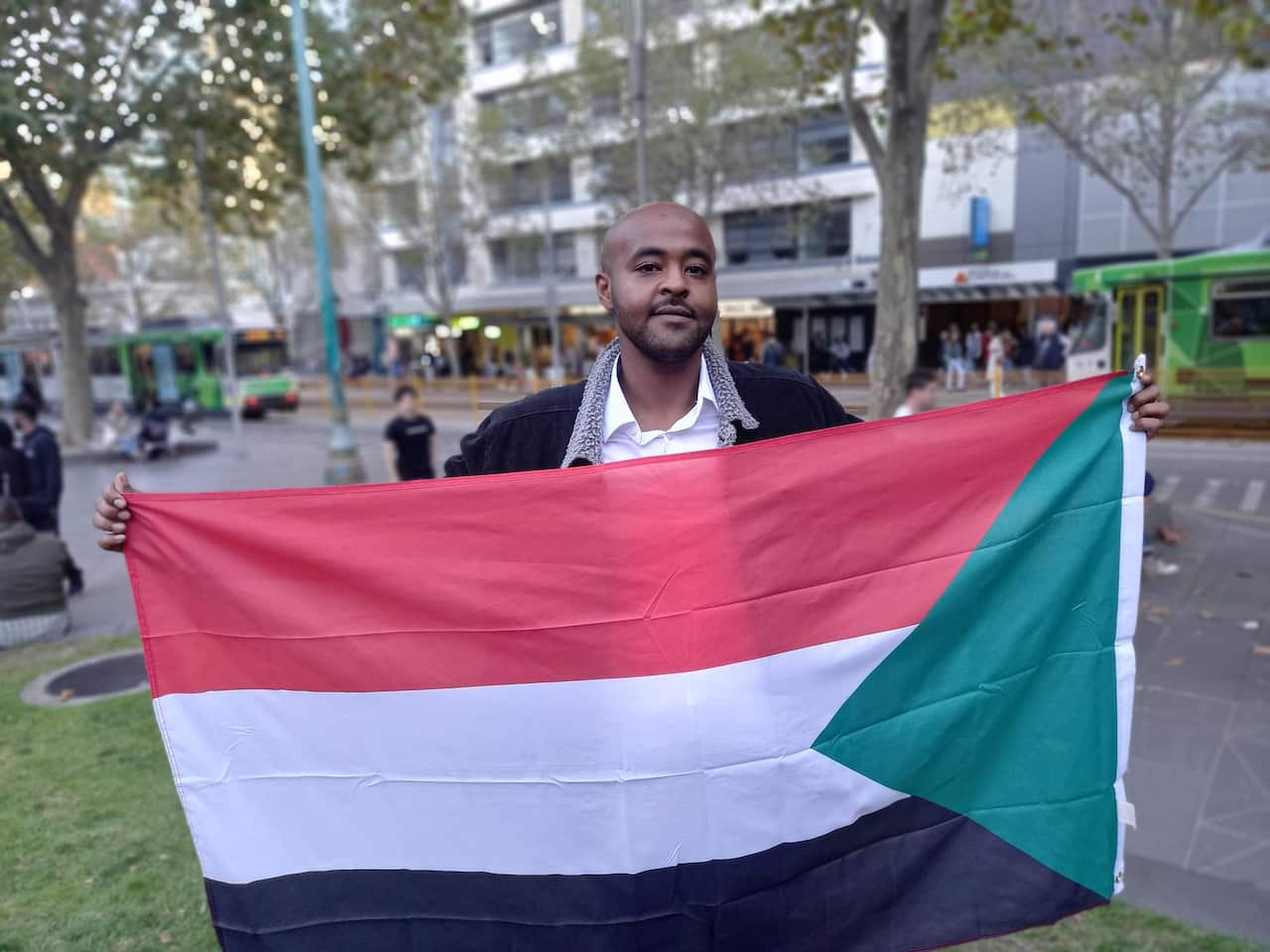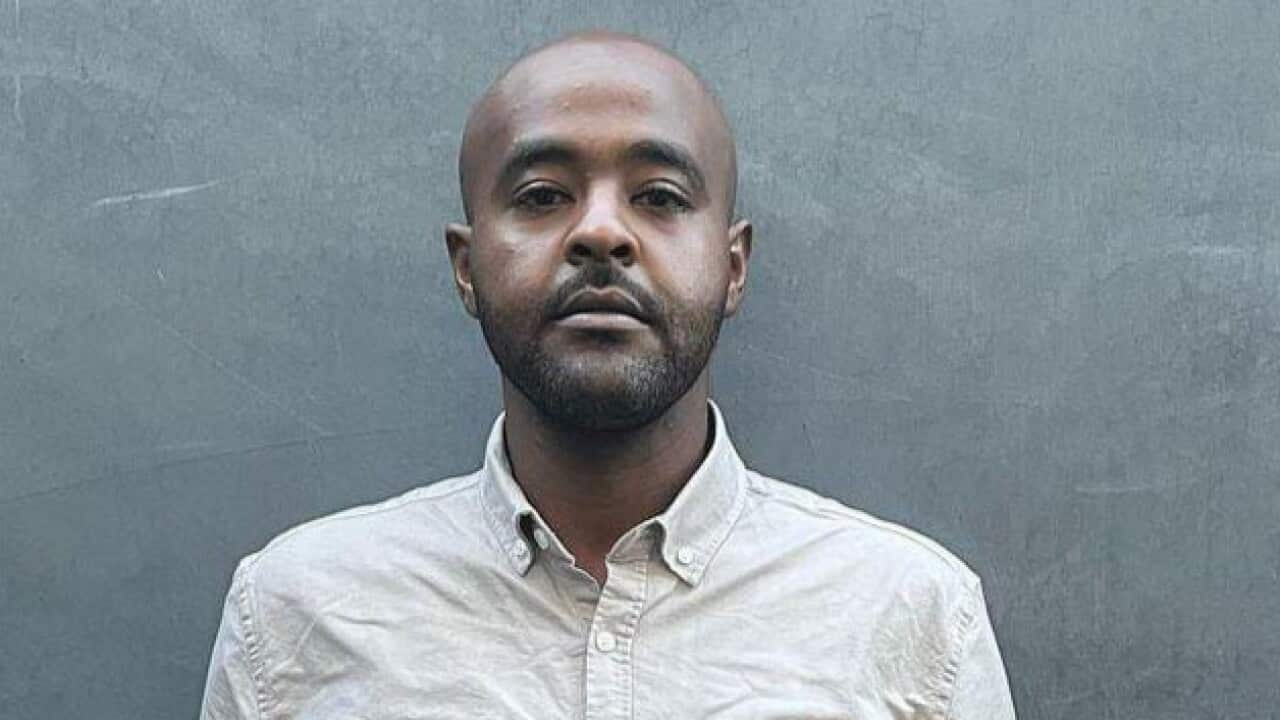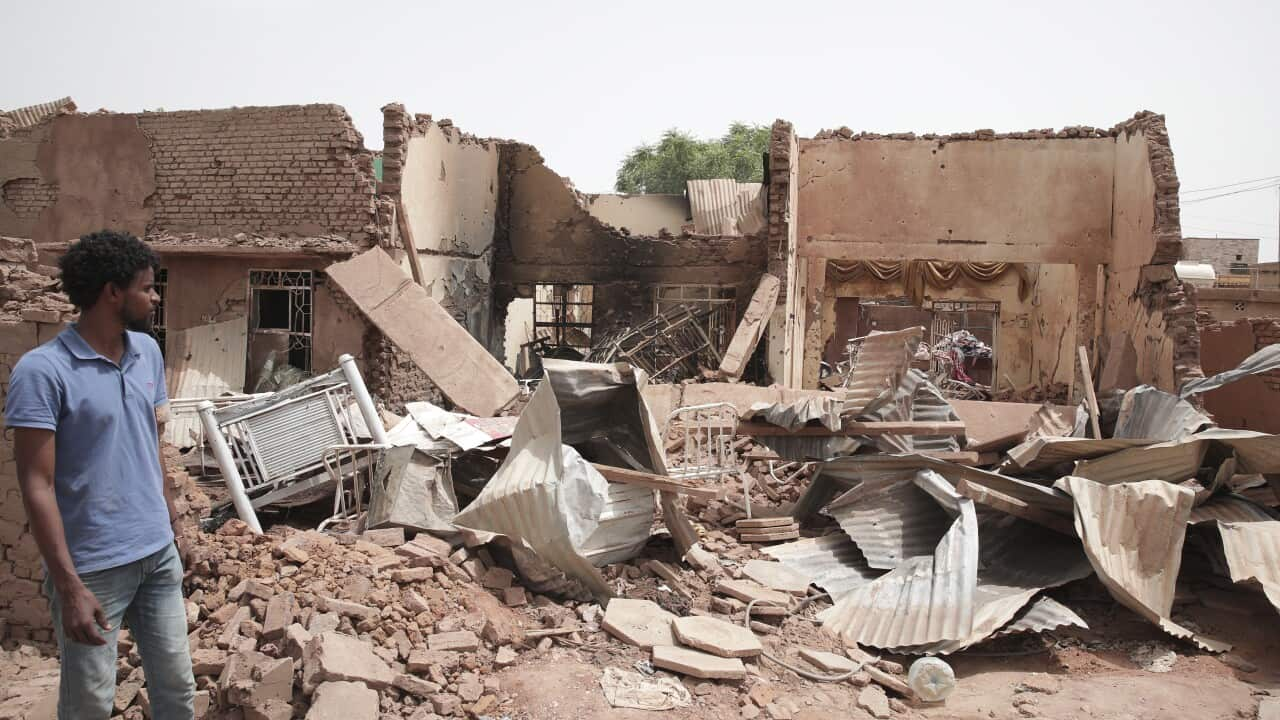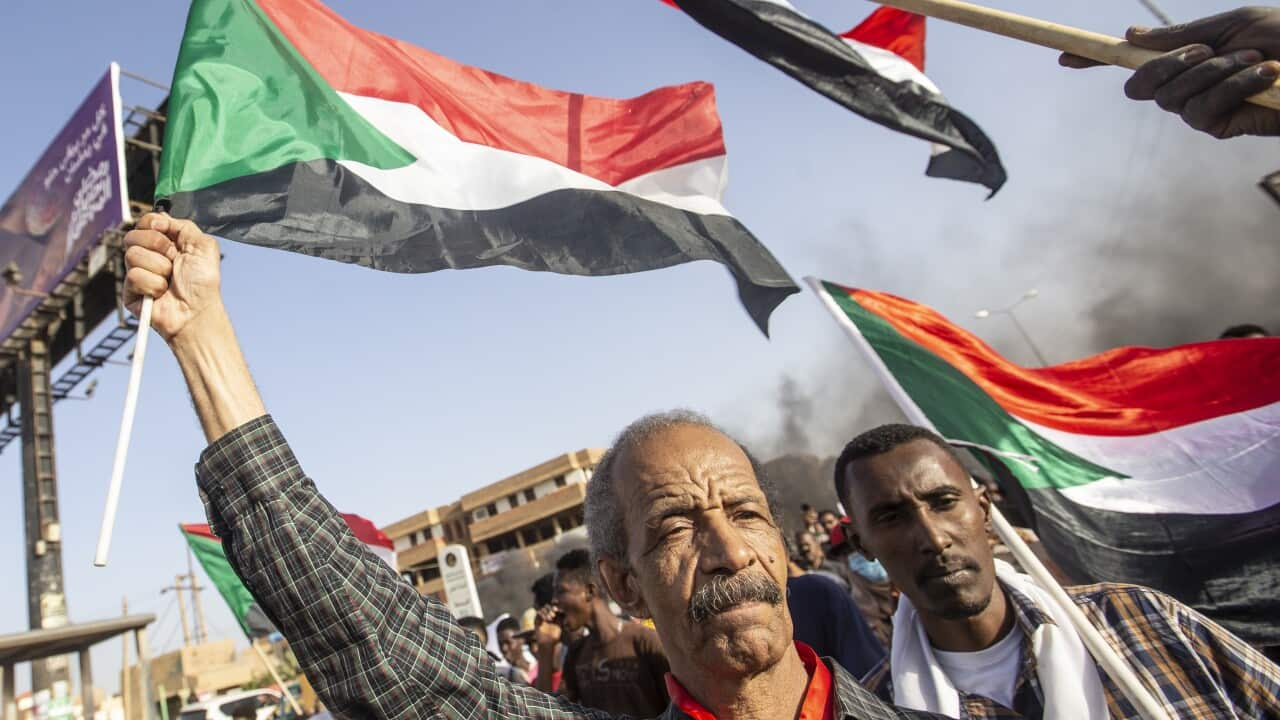Key Points
- More than 150 Australians and their families have now safely left Sudan, DFAT says.
- But 112 remain trapped in the country, with many unable to access evacuation routes.
- Those who have returned to Australia are pushing for humanitarian visas for family members left behind.
For Australian Eltayeb Eltayeb, fleeing Sudan last week was bittersweet. He's excited and relieved to be home but is plagued by a "sense of guilt" for the loved ones he had to leave behind.
The 28-year-old was forced to say goodbye to his grandmother in the northeast African nation, where a bloody conflict between the army and a paramilitary group is rapidly descending the country into civil war.
"I couldn't bring her with me because she's not a citizen," he told SBS News.
"The lucky ones who have dual citizenships, we were able to evacuate and escape [but] we're left with that feeling of despair, fear and guilt of leaving our family and our loved ones at home," he said at a rally in Melbourne on Saturday, where the diaspora appealed to the federal government to do more to help those fleeing the violence.

Eltayeb Eltayeb was forced to leave his grandmother in Sudan when he fled to Australia. Source: Supplied
"So sadly, they won't be getting evacuated, because he's scared for the safety of his wife. That's been very difficult for us," he told SBS News.
Mr Semra says the family is hoping to provide a visa for the baby after the birth so the family can travel to Australia. In the meantime, they fear she won't have adequate medical support when the time comes.
According to the Sudanese Australasian Medical Professionals Association (SAMPA), around 80 per cent of the hospitals in Sudan are out of action and those operating have next to no supplies, with medical professionals and aid workers attacked in recent days.
"It is concerning, but I just hope for the best and I hope that she'll be able to manage."

Sudanese Australian Mohamed Semra (R) has returned to Australia without his brothers and sister-in-law, who is nine months pregnant. They remain in Sudan without adequate food, water or medical supplies. Source: Supplied
"There's been . I can't even send my brothers money, because how are they going to receive it when banks are closed?
"People are trapped in their houses. The ceasefire is barely holding, there's reports of gunfire and reports of looting. And with the situation in Sudan only getting worse, it's very devastating, very concerning."
He said many Australians have been forced to abandon immediate family members, with the Sudanese community in Australia calling on the government to provide humanitarian visas to immediate family members.
"There are people that are leaving their wives, who are leaving their husbands, their kids…
"And there's that sense of guilt. There's that sense of abandonment."
Dozens of Australians remain in Sudan
The federal government has said Sudanese people in Australia can apply for visa extensions while those who have a "no further stay" condition can apply to have it waived.
Without an embassy in Sudan, Australia has been working with partner countries — including Indonesia, Canada, Germany and Norway — to get Australians out, while additional consular officers have been deployed to Djibouti, Jeddah, Cyprus, and Cairo to support those trying to flee.
The Department of Foreign Affairs (DFAT) said on Sunday more than 150 Australians and their family members have now safely left Sudan, while 112 remain.
"Australians in Sudan who want to leave should consider doing so as soon as possible. The security situation remains dangerous and travel routes should be assessed carefully," it said in a statement.
DFAT had been asking Australians registered in the country to make their way to Wadi Sayyidna airfield outside Khartoum, but is now advising them to travel to Port Sudan, where ferries have been travelling across the Rea Sea to Jeddah in Saudi Arabia where DFAT officials are on the ground.
On Saturday, Minister for Foreign Affairs Penny Wong said "Australians wanting to leave Sudan should strongly consider leaving as soon as possible".
"The security situation remains dangerous. Travel routes should be assessed carefully," she added.
But Mr Semra says it's been difficult for those outside the capital Khartoum to get to the airport or to Port Sudan due to a lack of transport or buses that are now charging $500 per seat.
"For all the Australians stuck across other regions it's been very difficult to get out of Sudan. And if they can't make it within the next three days [while the ceasefire is in place], who knows what might happen in the next couple of weeks or months," he added.
Trapped in their houses
SAMPA president Dr Alaeldin Elmalik said everyone in Australia's Sudanese community is worried about family, friends and colleagues back home.
"My mother and my brother and two sisters and their children are still trapped in Khartoum .. they cannot even leave the house, they cannot go anywhere. They're at risk of getting in the crossfire … it's really scary," he told SBS News.
"I'm up until maybe 3 or 4am checking on them, calling on them."

Dr Alaeldin Elmalik, president of the Sudanese Australasian Medical Professionals Association (SAMPA), says 80 per cent of the hospitals in Sudan are out of action and those operating have next to no supplies. Source: Supplied
Mr Eltayeb feels Australia could be doing more for its citizens trapped in the country. He and his family were so desperate to leave that they decided to .
He believes the federal government did a lot more to help those trying to flee Ukraine.
"A lot of Australians are still stuck with very various discrepancies on their paperwork. And some of them have daughters and babies that they can't bring because they were born overseas.
"Sudan is going through a crisis and it's the same crisis that occurred in Ukraine, the difference is this is in Africa and that was in Europe. We urge the government to think about humanitarian aid, humanitarian visa support for those families, extended families that are stuck there still, and anybody that has connections in Australia to be allowed to enter.
"We hope that the government does step up and treat the citizens equally like any other human being should be treated."




